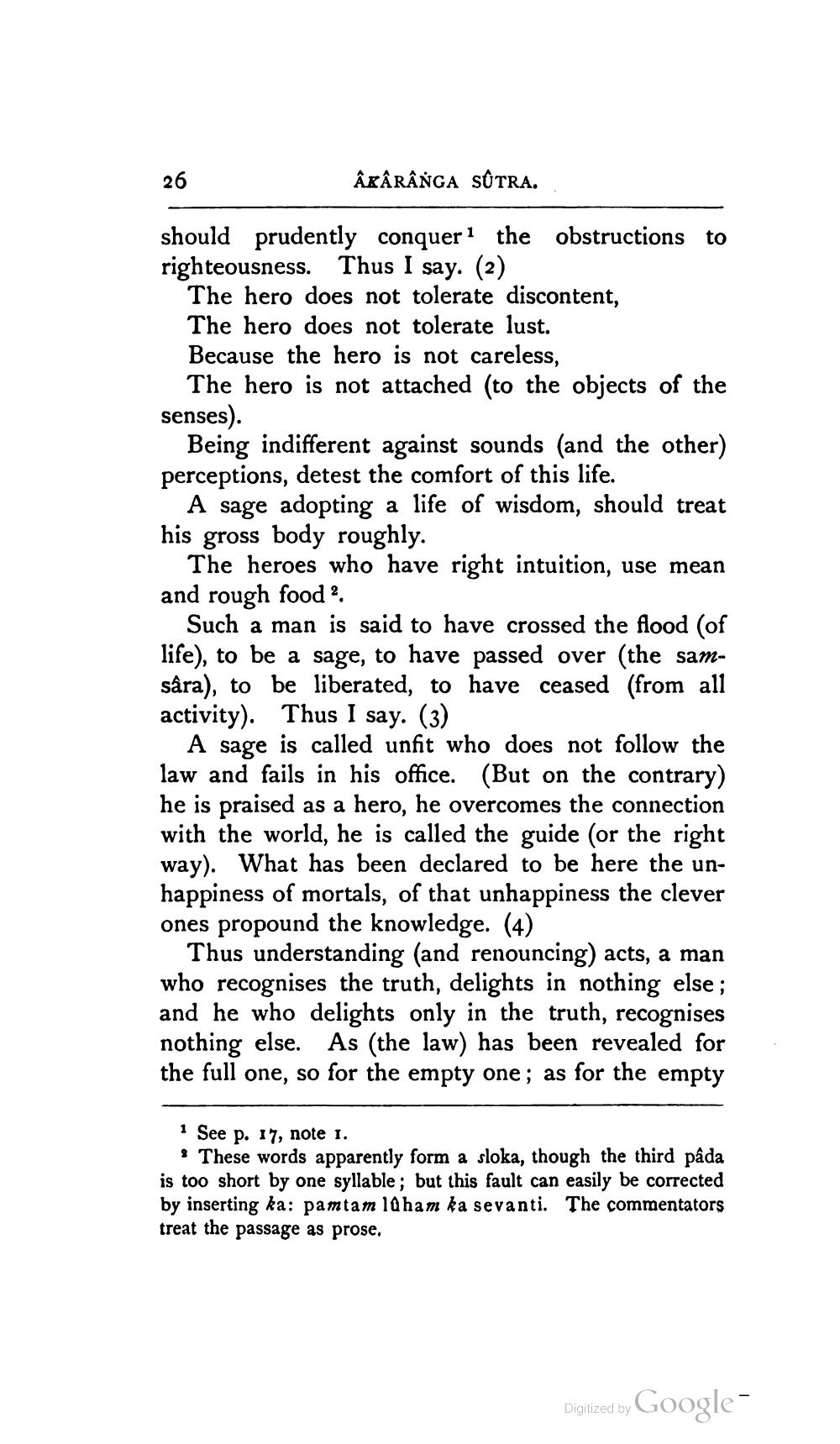________________
ÂKÂRÂNGA SÛTRA.
should prudently conqueri the obstructions to righteousness. Thus I say. (2)
The hero does not tolerate discontent, The hero does not tolerate lust. Because the hero is not careless,
The hero is not attached (to the objects of the senses).
Being indifferent against sounds (and the other) perceptions, detest the comfort of this life.
A sage adopting a life of wisdom, should treat his gross body roughly.
The heroes who have right intuition, use mean and rough food 2.
Such a man is said to have crossed the flood (of life), to be a sage, to have passed over (the samsâra), to be liberated, to have ceased from all activity). Thus I say. (3)
A sage is called unfit who does not follow the law and fails in his office. (But on the contrary) he is praised as a hero, he overcomes the connection with the world, he is called the guide (or the right way). What has been declared to be here the unhappiness of mortals, of that unhappiness the clever ones propound the knowledge. (4)
Thus understanding (and renouncing) acts, a man who recognises the truth, delights in nothing else ; and he who delights only in the truth, recognises nothing else. As (the law) has been revealed for the full one, so for the empty one; as for the empty
1 See p. 17, note 1.
* These words apparently form a sloka, though the third pada is too short by one syllable; but this fault can easily be corrected by inserting ka: pamtam 10 ham ka sevanti. The commentators treat the passage as prose.
Digitized by Google




